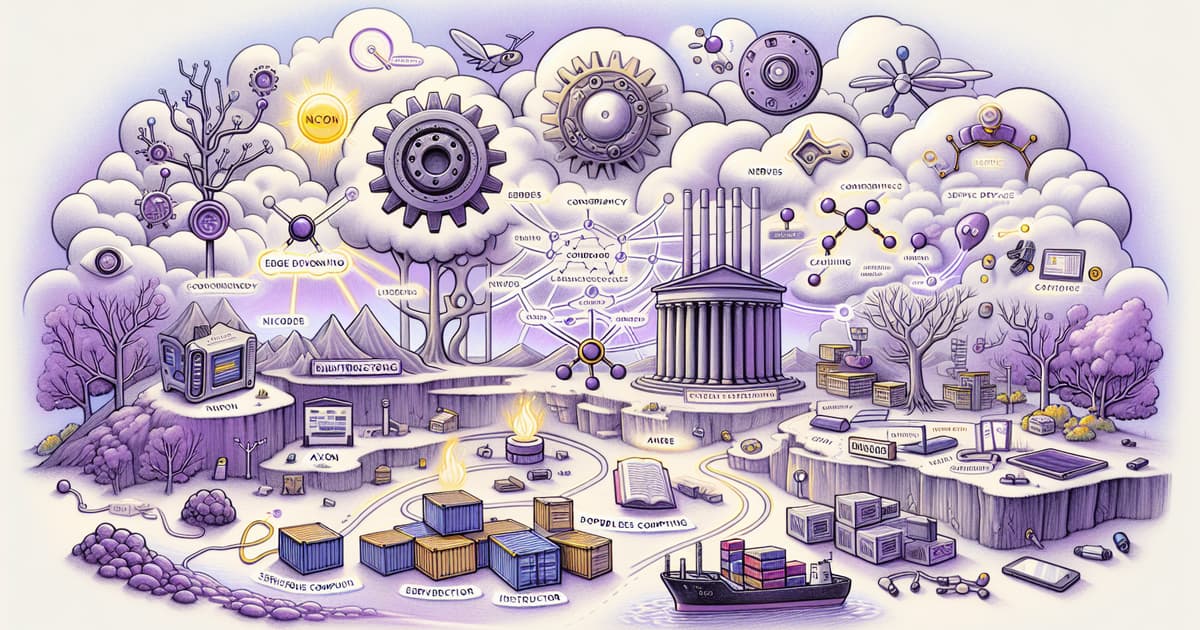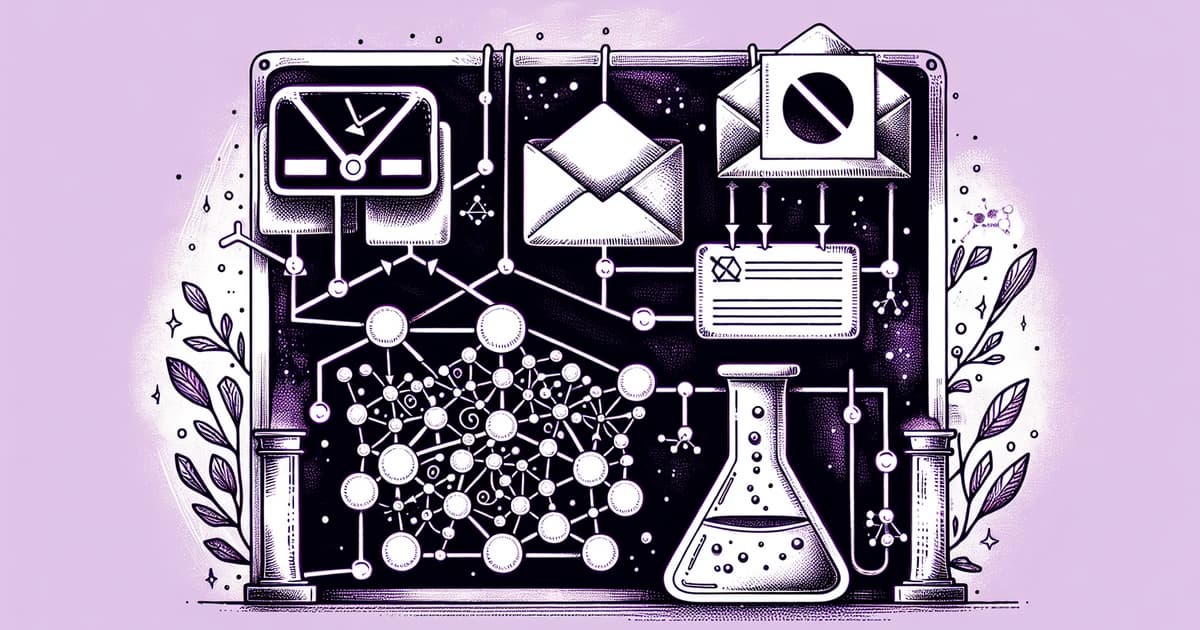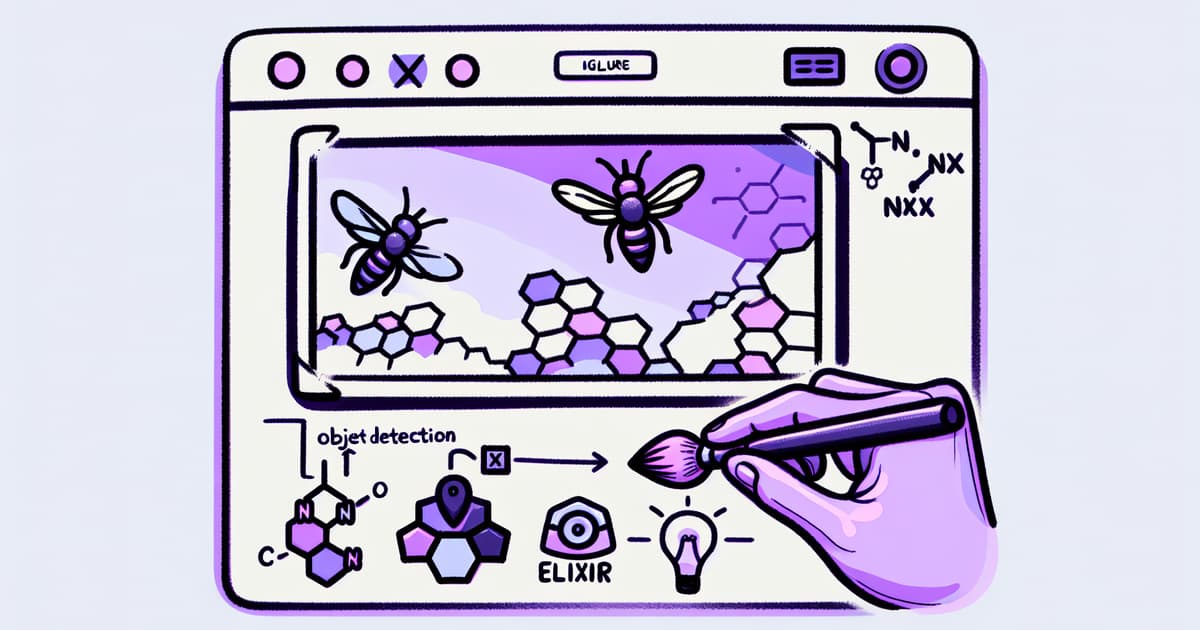We can't find the internet
Attempting to reconnect
Something went wrong!
Hang in there while we get back on track
Machine Learning

The landscape of machine learning in the Elixir programming language is diverse and rapidly evolving, with an emphasis on functional programming and powerful concurrency primitives. The Nerves Project, although primarily focused on embedded systems, has seen updates that might contribute to machine learning applications in edge devices. Within this landscape, the FLAME library and Nx are being discussed as formidable tools for constructing elastic workloads, challenging the norms of serverless computing.
Leveraging the strengths of Elixir's functional environment, libraries such as Axon have been developed, offering a fresh perspective to neural network training by providing an Elixir-native API without the need for bridging to Python-based frameworks. This approach not only simplifies machine learning workflows but also enhances scalability. Elixir is also proving itself to be nimble in startup times for machine learning applications, with strategies like Dockerfile caching dependencies, driving faster deployments.
When it comes to integrating AI into Elixir projects, open-source initiatives like Instructor pave the way by addressing common integration challenges such as parsing unstructured data. By utilizing Ecto schemas, Instructor aims to streamline AI integration into standard software systems. Additionally, a variety of Elixir libraries are making machine learning more approachable, with each offering distinct functionalities likened to their Python counterparts. These libraries, including Elixir-Nx, Axon, Bumblebee, and Scholar, enrich the ecosystem with tools for data exploration, model training, and application in real-world apps like semantic search for HexDocs.
Moreover, enhancements in Phoenix reveal an intersection with AI through features such as image recognition and conversational agents, highlighting the flexibility of Elixir in various domains. The language's ecosystem is seen to mature with developers reflecting on its growth particularly in machine learning, underlining projects like Nx that began with unlikely starts but now face a promising future. The practical application of machine learning in Elixir spans several domains, from optimizing language models to developing audio-speech recognition with pre-trained models.
Elixir's vibrant community is contributing to a wealth of educational materials, podcasts, and conferences, where topics range from prototyping AI agents and full-text search engines to using fuzzy logic and machine learning for real-world problems like spam detection. Thought leaders and developers alike are demonstrating the applicability and efficiency of Elixir in machine learning through tutorials, real-world applications, and explorations of model deployment in production environments. The broad and active involvement in areas such as conversational AI, recommendation engines, and prototyping evidences a keen interest in leveraging Elixir's strengths in the AI field. The growing library ecosystem and improvements in areas like quantization and MLIR support promise an exciting future for machine learning applications within the Elixir community.

Leveraging Elixir & Phoenix for Building Software in Auroville
Shankar Dhanasekaran speaks about using Elixir and Phoenix to create software for Auroville, a city of 50,000 people. He emphasizes the benefits of Elixir and Phoenix in managing complex, multi-service domains, and shares their journey of moving away from Drupal to Elixir, the adoption challenges faced, and the productivity gains. The talk also highlights the future potential of Elixir in the context of Auroville's development, such as the potential for cloud farming and machine learning.

Elixir's Impact on Machine Learning and Production Workflows
Christopher Grainger explores the integration of machine learning in production within the Elixir ecosystem, highlighting the use of Nx, Livebook, and Scholar.

Three-Year Growth of Elixir's Nx Machine Learning Library
Sean Moriarity reflects on the growth and success of the Elixir machine learning ecosystem over the past three years. He discusses the unlikely start of the Nx project, the challenges faced, and the future of machine learning in Elixir.

Developing a Chessboard Image to FEN Converter with Elixir
Barrett Helms presents at ElixirConf 2023 about building an image recognition system in Elixir that converts pictures of a chessboard into Forsyth-Edwards Notation (FEN) for efficient storage and renders an interactive board in the UI. Through his talk, Barrett shares his journey of encountering the problem while building a web app for practicing chess tactics and finding a solution using Elixir.

Optimizing and Serving Large AI Models with Elixir and Nx
Toran Billups fine-tunes Mistral 7B using the RTX 4090 with limited vRAM, thanks to the open source Python project lit-gpt. He shares the steps required for fine-tuning and serving the model with Nx.

Building Scalable Machine Learning Applications with Elixir
Sean Moriarity shows how easy it is to build machine-learning applications with Elixir, especially in a few hours, to build a simple enriched newsfeed.

Using Elixir's Axon for Custom Language Model Training
Toran Billups explores the key aspects of fine-tuning language models with Axon and Bumblebee at ElixirConf 2023, covering topics from data engineering and model selection to optimization techniques and evaluation strategies.

Summary of Machine Learning Developments in Elixir for Q3 2023
José Valim explores the latest developments in Elixir and Machine Learning in his blog post, highlighting the improvements in Nx, Explorer, Bumblebee, Scholar, and other projects. The future looks bright as optimization areas, like quantization and MLIR support, gain further attention.

Integrating Machine Learning Models with Elixir Using Nx
Andrés Alejos presents a talk at ElixirConf 2023 about using EXGBoost + Mockingjay, a Gradient Boosted Decision Tree library, in Elixir for learning structured tabular data and its application in a scalable production environment using Nx's Serving capability and a Phoenix web app.

Streamlining MLOps with Elixir's Capabilities
Sean Moriarity shows how to do MLOps in Elixir, simplifying the deployment of machine learning models without much effort.

Enhancing Machine Learning Decision Trees with Elixir
Andres Alejos created Mockingjay, a library designed to implement algorithms present in Microsoft’s Hummingbird for compiling tree-based machine learning algorithms into native Nx functions.

Developing AI Applications Using Elixir
Charlie Holtz discusses prototyping and deploying AI agents with Elixir, highlighting the benefits of using the BEAM + Elixir Agents for building specialized AI models and applications in a distributed, functional, and scalable manner.

Exploring Motion Tracking in Elixir with Bumblebee and LiveView
Katelynn Burns presents the Thursday keynote at ElixirConf US 2023, Orlando, FL. She explores the fascinating and complicated movement of bodies, discussing how LiveView's open socket design and Bumblebee's neural network capability can be used to create motion magic.

Insights and Lessons from Phoenix Framework Development
Chris McCord shares his insights on new features coming to Phoenix at ElixirConf US 2023 in Orlando, FL.

Improving Elixir Argument Validation with NimbleOptions
Andres C Alejos discusses how to level up your Elixir option handling with the NimbleOptions library, which provides powerful and flexible argument validation schemas.

Serving Spam Detection With XGBoost and Elixir
Learn how to detect spam with XGBoost and Elixir and serve the model for production use. Andres C Alejos shares their process and insights in this informative article.

Exploring Flop for Elixir Data Handling
In Episode 166 of the Thinking Elixir podcast, Mathias Polligkeit discusses his creation of the flop library, which provides a convenient and reusable solution for filtering, sorting, and pagination in Elixir projects. He also introduces the flop_phoenix package, which includes heex components for building filter forms and tables. It's an interesting exploration of a useful library for Elixir developers.

Using Whisper for Speech Recognition in Elixir Applications
In this blog post, Sean Moriarity introduces Whisper, an audio-speech recognition model developed by OpenAI. He explains the challenges and uses of audio-speech recognition and provides instructions on how to use Whisper in Elixir applications with the help of the Bumblebee library.

Using Scholar for Traditional Machine Learning in Elixir
Sean Moriarity discusses traditional machine learning in Elixir with Scholar, a set of machine learning tools built on top of Nx. He explains how Scholar offers implementations of non-deep-learning models like linear regression and logistic regression, and demonstrates how to fit and visualize a linear regression model using Scholar in Elixir.

Elixir and Open-Source Alternatives to Proprietary LLMs like ChatGPT
In this blog post by Sean Moriarity, he discusses the rise of large-language models (LLMs) like OpenAI's ChatGPT and GPT-4, and explores open-source alternatives to these models. He highlights the benefits of using open-source models, such as data privacy, lower latency, task-specific performance, and cost considerations, and introduces some popular open-source options like Flan-T5, Llama, and OpenAssistant that can be used with Elixir.

Building a Video Object Detection Prototype with Elixir
Philip Brown has built a prototype of object detection in a video stream using Elixir, Bumblebee, and Phoenix LiveView. He provides a step-by-step guide on setting up the project, implementing object detection from a video, and building the LiveView application for displaying the video and predictions in the browser.

Tutorial on Recognizing Handwritten Digits with Elixir ML
In this tutorial by Philip Brown, you will learn how to build an end-to-end machine learning project using Elixir. The tutorial covers everything from setting up the project using Phoenix, obtaining training data, preprocessing the data, building and training the model, and finally, creating a LiveView to accept user input and display predictions.

Optimizing Application Boot Times with Dockerfile Alterations
Jason Stiebs discusses how to optimize boot up time for Machine Learning and Single File Elixir Scripts. By caching dependencies in the Dockerfile during the build step, the boot time can be significantly reduced, resulting in faster application deployment.

Exploring Nx and Tensors Beyond Machine Learning in Elixir
This post by Jason Stiebs explores the use of NX with Elixir for efficient math programming. It explains how tensors can be used to perform various mathematical operations and highlights the potential of NX for tasks like machine learning and image manipulation.

From Python to Elixir Machine Learning
Andres C Alejos discusses the growth of Elixir's machine learning ecosystem and why now is a good time to start porting machine learning code into Elixir. He provides practical tips and examples for developers looking to move from Python to Elixir for machine learning projects.

Insights into Elixir's Machine Learning Libraries
Andres C Alejos provides an introduction to machine learning in Elixir and offers a glossary of libraries in the Elixir machine learning ecosystem. He covers libraries such as Elixir-Nx, Axon, Bumblebee, Scholar, Explorer, Scidata, EXGBoost, Ortex, Livebook, and more, highlighting their functionalities and similarities to popular Python libraries.
© HashMerge 2026